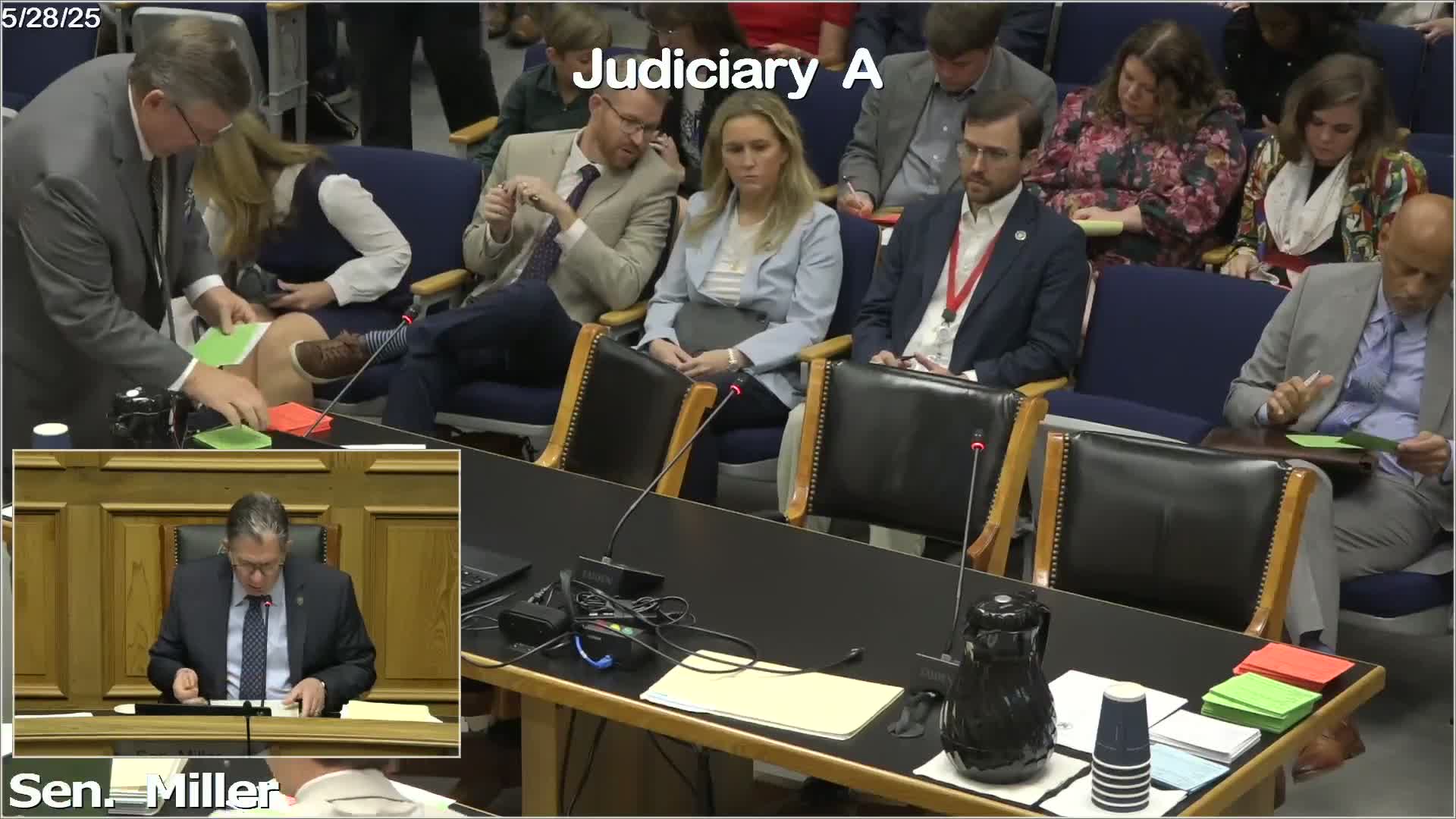Article not found
This article is no longer available. But don't worry—we've gathered other articles that discuss the same topic.
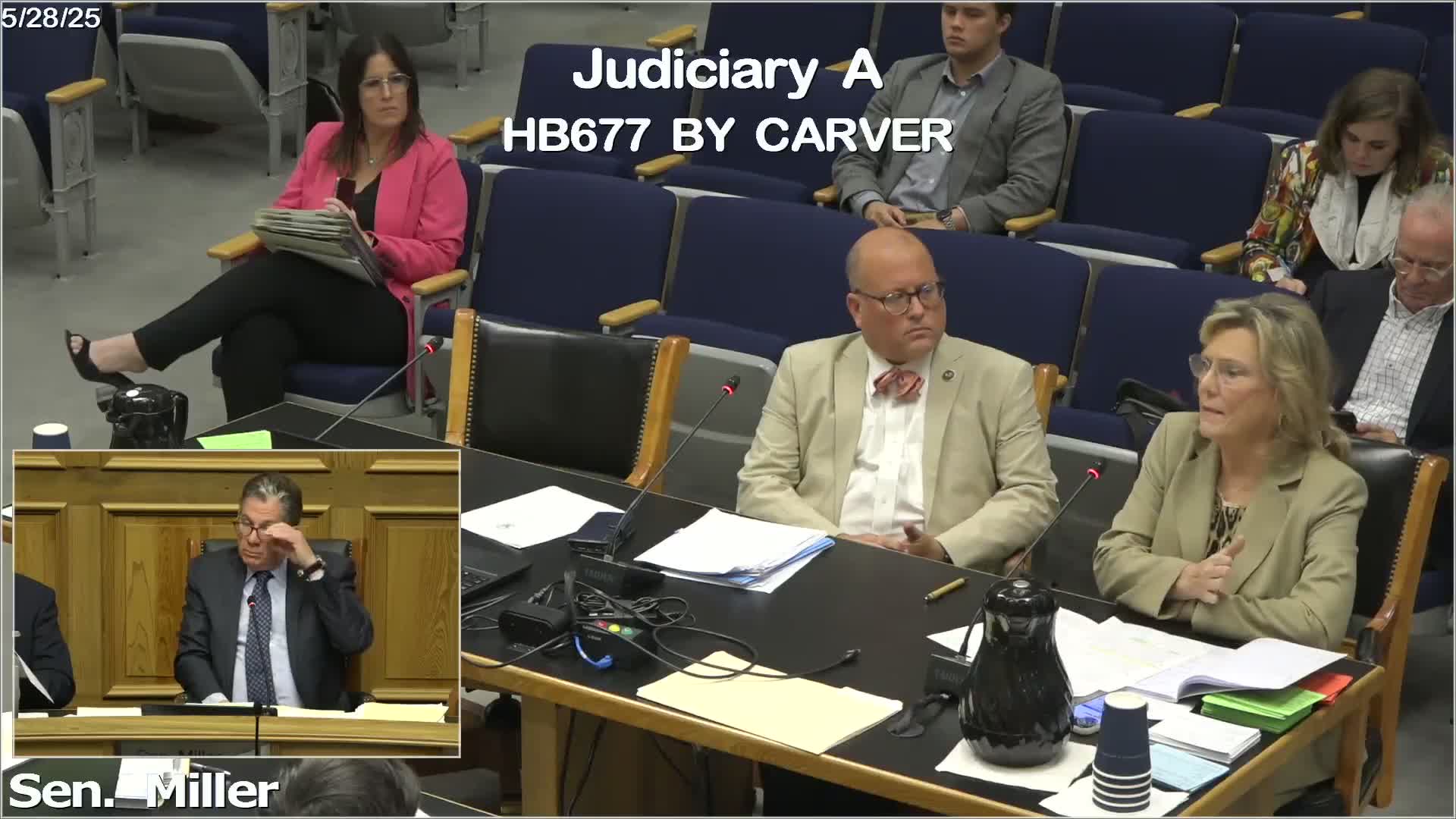
Committee advances bill tying unregulated consumable hemp to drug‑dealer liability amid industry objections
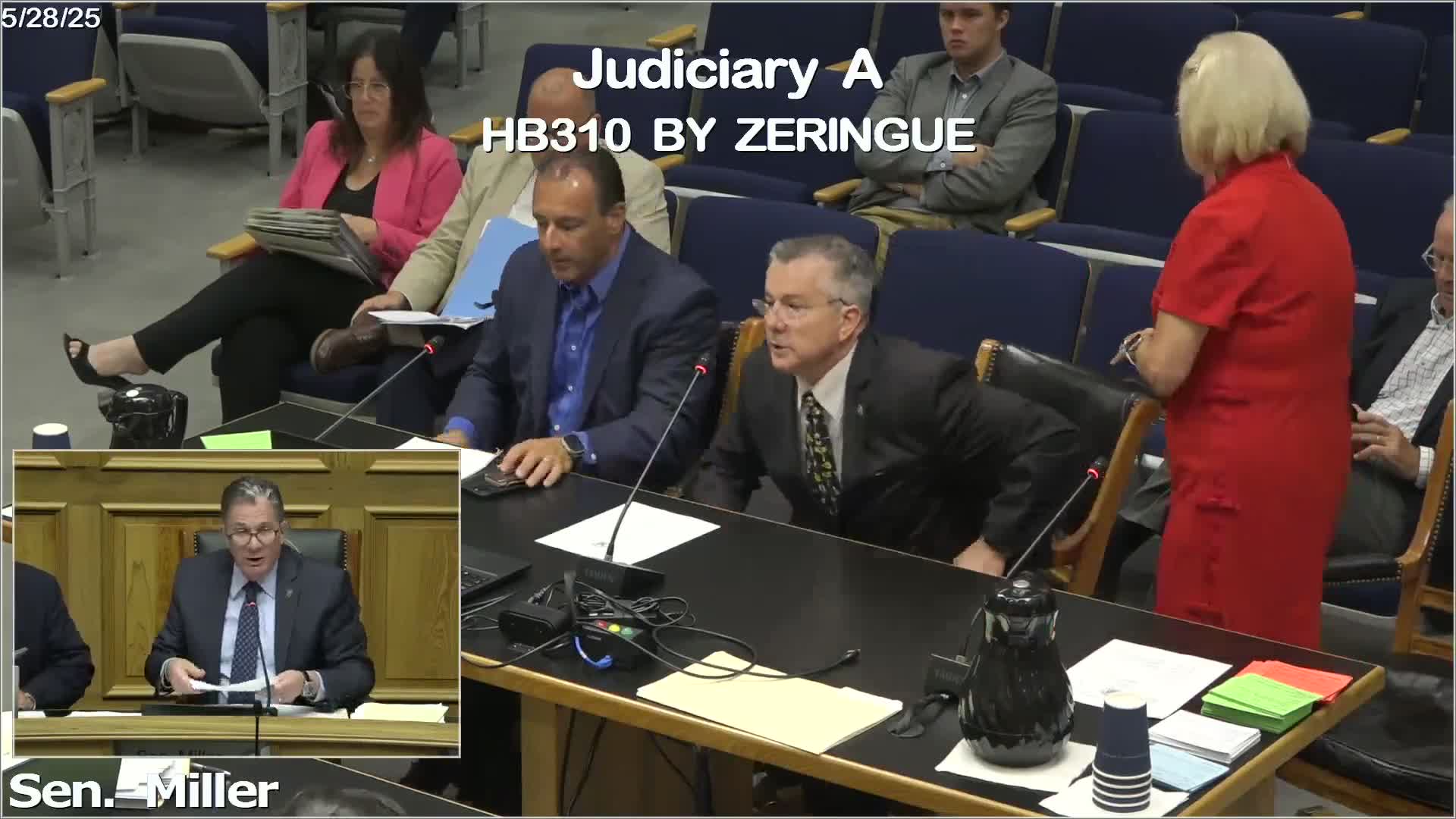
Committee hears constitutional objections to bill that would require attorneys to disclose net client recoveries
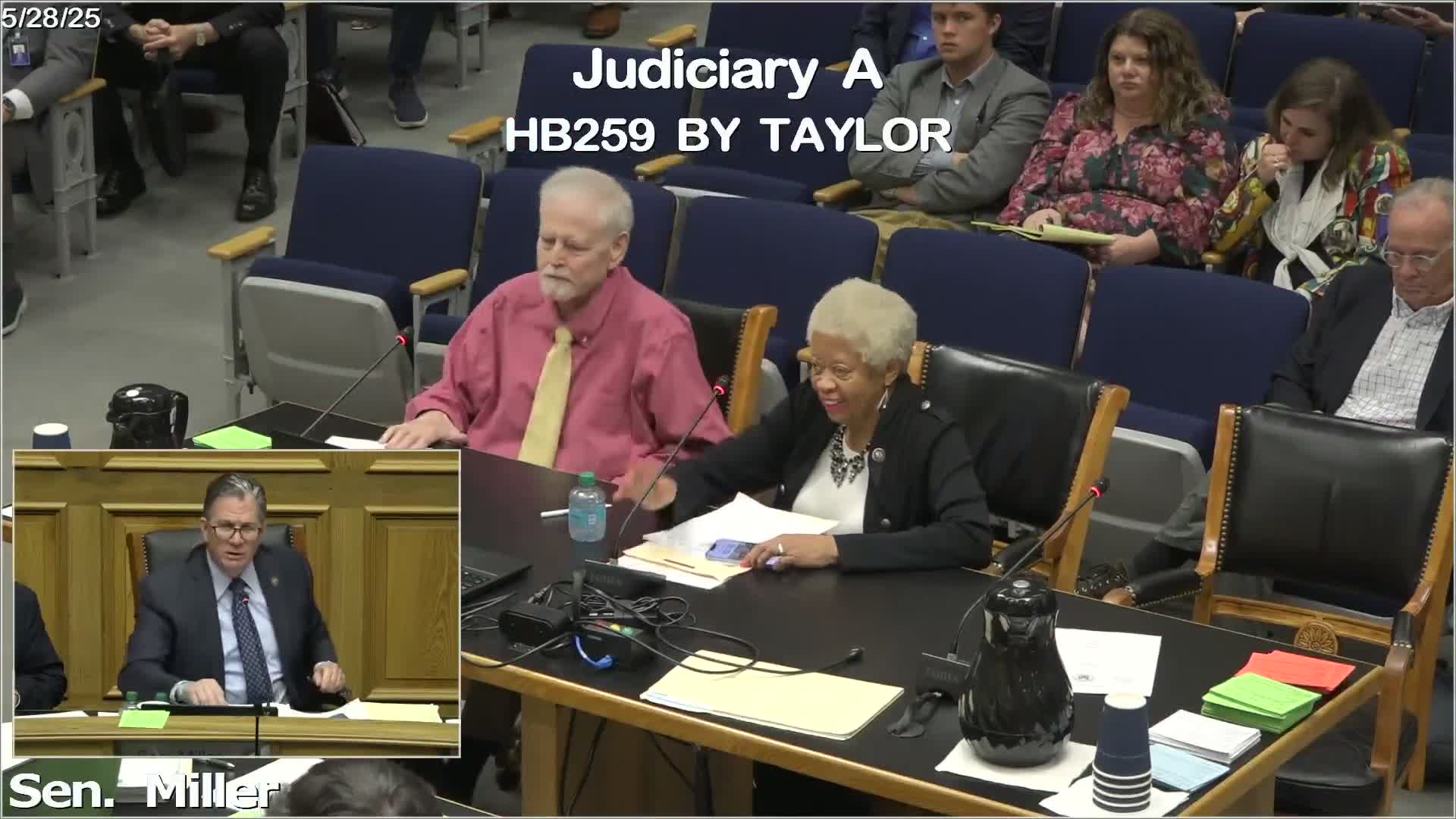
Committee raises notary bond requirement to $50,000; sponsor and industry say change will protect consumers
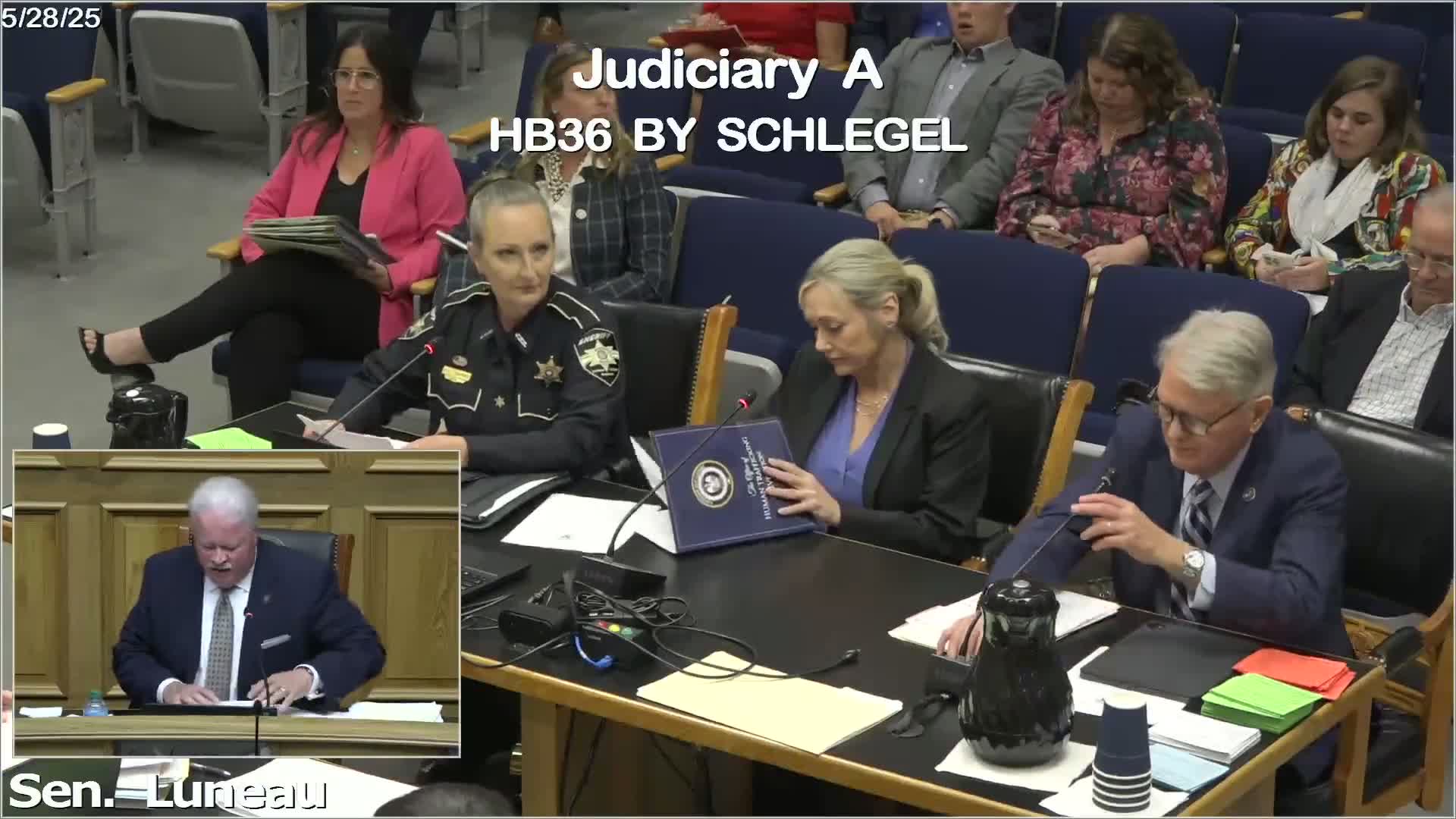
Bill would require automakers to disconnect remote access on request after protective orders; committee adopts amendments
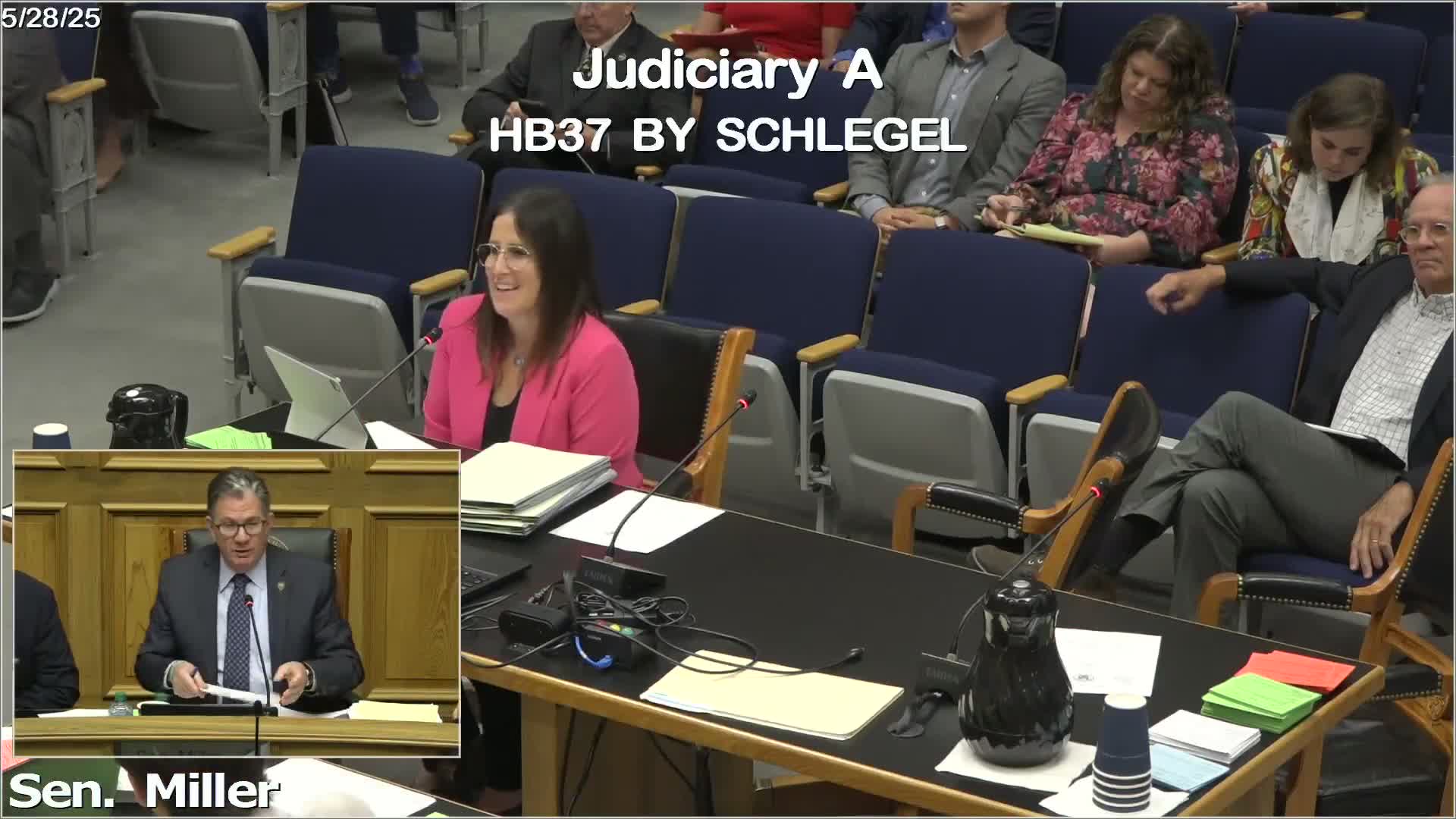
Committee adopts amendments to bill requiring online platforms to protect minors and adds AG enforcement
